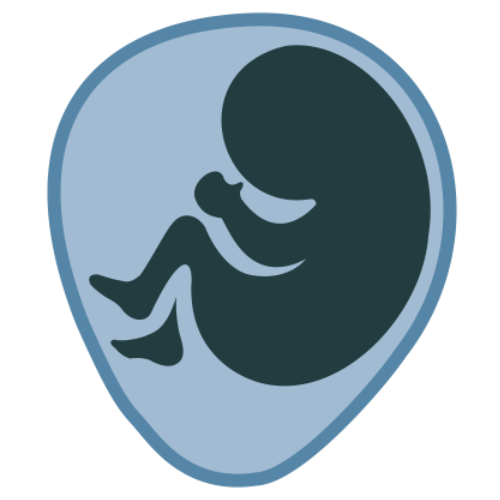
Is my baby at risk if I test positive for COVID-19?
Pregnant people with COVID-19 are more likely to get seriously ill, which can lead to pregnancy problems such as preterm birth. The CDC recommends that pregnant people get vaccinated to protect against serious illness.
Source: Eunice Kennedy Shriver National Institute of Child Health and Human Development
NIH Study of COVID-19 Testing during Pregnancy
NIH is supporting a study of pregnant women to see if and when they were exposed to SARS-CoV-2, the virus that causes COVID-19. The researchers hope to identify a COVID-19 testing strategy to improve pregnancy care.
Source: NIH RePORTER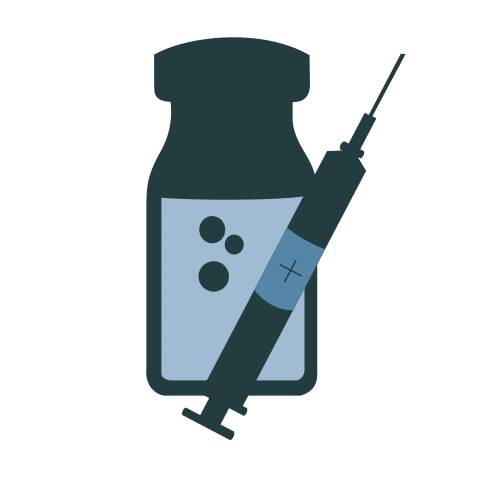
Is it safe to get a COVID-19 vaccine when pregnant or breastfeeding?
Research shows that vaccines, including the Pfizer and Moderna mRNA vaccines, are safe and effective while pregnant or breastfeeding.
- Vaccination prevents COVID-19 and reduces the risk of severe disease.
- Vaccines are very effective against SARS-CoV-2 variants.
- The antibodies your body makes after vaccination can travel to the baby before birth or through breastmilk after birth.
The CDC strongly recommends COVID-19 vaccination either before or during pregnancy.
Source: NIH Director's Blog
How you can help advance research
People who are pregnant or just gave birth may join NIH research studies so that scientists can gather more data on vaccine safety and effectiveness in pregnancy. Scientists are also using data from people who got pregnant while participating in earlier vaccine studies.
Source: NIH news release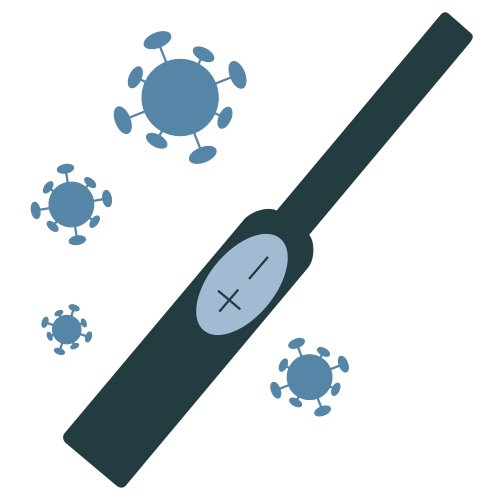
Do vaccines cause infertility?
There is no evidence currently that any vaccines, including COVID-19 vaccines, cause female or male fertility problems. The CDC recommends COVID-19 vaccines for people who are pregnant or are trying to get pregnant.
Source: Centers for Disease Control and Prevention
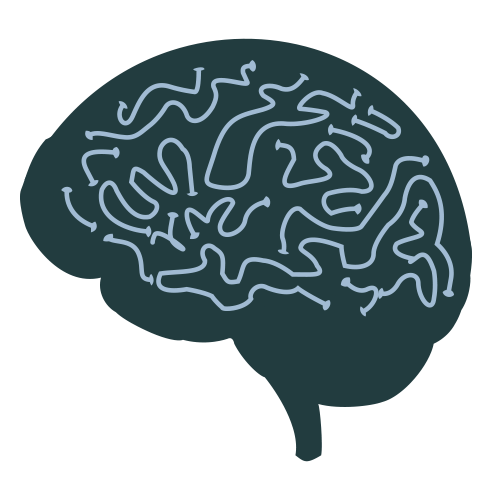
Do stress and anxiety from the pandemic affect my pregnancy?
Stress, anxiety, and depression can affect your health and the health of your baby. During the pandemic, many pregnant people said they felt lonely or had anxiety or PTSD. In one NIH study, women reported that the pandemic raised their stress levels, causing problems with childbirth, bonding with their babies, and breastfeeding.
- Use an action plan during pregnancy or after birth to find out if what you are feeling is depression or an anxiety disorder and if you should seek help.
- The most important thing is to let someone know that you’re having trouble coping. Many people feel the same way.
- If you are thinking about harming yourself or your baby, or if you are concerned about someone, call 9-1-1 now.
- Learn more about caring for your mental health.


Is my risk for blood clots higher during pregnancy if I get COVID-19?
Possibly. Both pregnancy and COVID-19 increase the risk of developing blood clotting problems.
- Talk to your doctor about your personal risk.
- If you are hospitalized for COVID-19, you may get medicine to lower the risk of dangerous blood clotting. Some of these medicines are safe for women who are breastfeeding their babies.

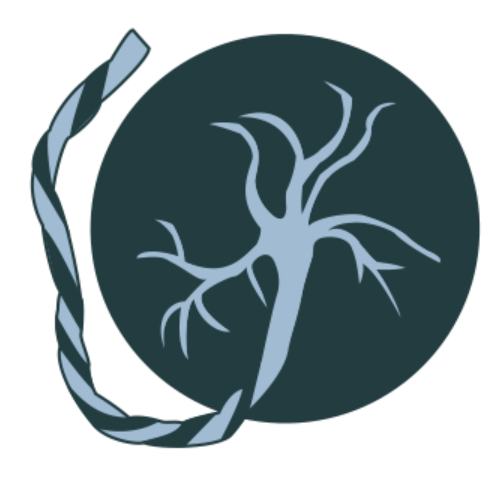
If I have COVID-19, will it spread to my baby during pregnancy?
Only a few newborns have tested positive for COVID-19 shortly after birth. It is unknown if these newborns got the virus before, during, or after birth. Most newborns who tested positive for COVID-19 had mild or no symptoms and recovered.
Source: Centers for Disease Control and Prevention
NIH Studies on the Placenta
NIH research has shown that the cells of the placenta don’t allow SARS-CoV-2 to travel to a developing baby. Because of this, the chance that your baby will be born with COVID-19 is very low.
- The NIH supports research on the placenta, including a study using magnetic resonance imaging (MRI) to see what happens when SARS-CoV-2 tries to enter the placenta’s cells.

Can breastfeeding protect my baby from getting COVID-19?
Breastmilk provides protection against many illnesses. This also seems to be true for COVID-19.
- An NIH-supported study found that when a pregnant person has antibodies against SARS-CoV-2 after being vaccinated or having COVID-19, those antibodies may be transferred to the baby through breastmilk. The antibodies help babies gain immunity that can protect them from COVID-19.

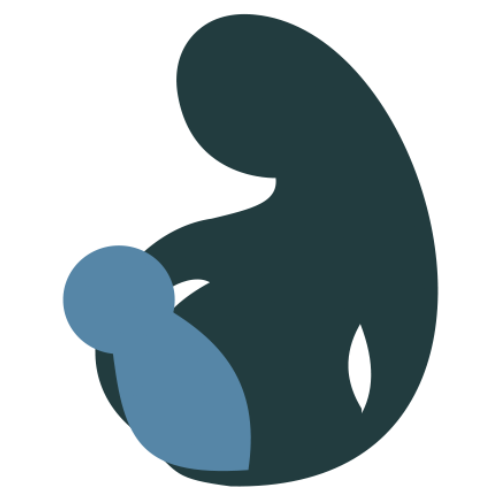
Can COVID-19 during pregnancy affect my child long term?
It’s unlikely that your baby will get COVID-19 while you are pregnant, and COVID-19 during pregnancy rarely causes serious short-term problems for the pregnant woman or her child.
- Severe COVID-19 during pregnancy does raise the risk of pregnancy problems, such as preterm birth, that can affect your baby’s development.

Studying COVID-19 in Children
Any infection during pregnancy, including COVID-19, can trigger the body’s immune response and cause inflammation. It’s also possible that your infant may get COVID-19 after being born.
- NIH is supporting a study on possible effects of the pandemic on inflammation in women’s bodies and on their children's brain development.
- Other NIH studies are focusing on SARS-CoV-2 infection in children and related conditions.
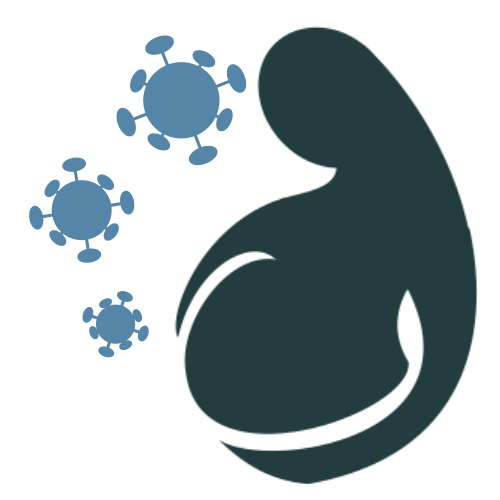
Where can I learn more?
- Science Is Answering Questions About COVID-19 and Pregnancy, NIH
- COVID-19 Research and NICHD, Eunice Kennedy Shriver National Institute of Child Health and Human Development
- COVID-19 Vaccines While Pregnant or Breastfeeding, Centers for Disease Control and Prevention (CDC)
- Breastfeeding and Caring for Newborns, CDC

 An official website of the United States government
An official website of the United States government
